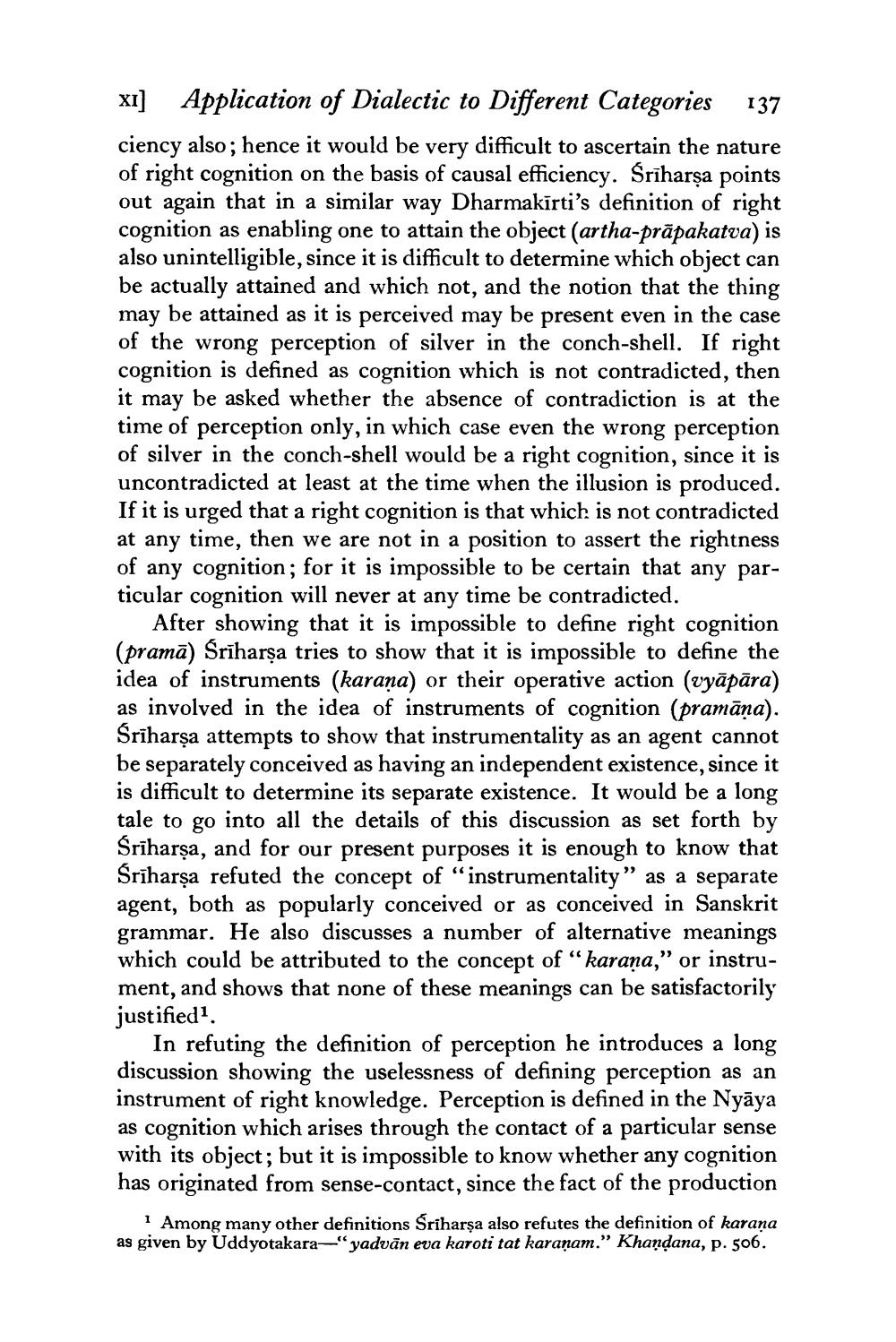________________
XI] Application of Dialectic to Different Categories 137 ciency also; hence it would be very difficult to ascertain the nature of right cognition on the basis of causal efficiency. Śrīharșa points out again that in a similar way Dharmakirti's definition of right cognition as enabling one to attain the object (artha-prāpakatva) is also unintelligible, since it is difficult to determine which object can be actually attained and which not, and the notion that the thing may be attained as it is perceived may be present even in the case of the wrong perception of silver in the conch-shell. If right cognition is defined as cognition which is not contradicted, then it may be asked whether the absence of contradiction is at the time of perception only, in which case even the wrong perception of silver in the conch-shell would be a right cognition, since it is uncontradicted at least at the time when the illusion is produced. If it is urged that a right cognition is that which is not contradicted at any time, then we are not in a position to assert the rightness of any cognition; for it is impossible to be certain that any particular cognition will never at any time be contradicted.
After showing that it is impossible to define right cognition (pramā) Sriharsa tries to show that it is impossible to define the idea of instruments (karaṇa) or their operative action (vyāpāra) as involved in the idea of instruments of cognition (pramāna). Sriharsa attempts to show that instrumentality as an agent cannot be separately conceived as having an independent existence, since it is difficult to determine its separate existence. It would be a long tale to go into all the details of this discussion as set forth by Śrīharşa, and for our present purposes it is enough to know that Sriharsa refuted the concept of "instrumentality” as a separate agent, both as popularly conceived or as conceived in Sanskrit grammar. He also discusses a number of alternative meanings which could be attributed to the concept of " karaņa," or instrument, and shows that none of these meanings can be satisfactorily justified
In refuting the definition of perception he introduces a long discussion showing the uselessness of defining perception as an instrument of right knowledge. Perception is defined in the Nyāya as cognition which arises through the contact of a particular sense with its object; but it is impossible to know whether any cognition has originated from sense-contact, since the fact of the production
Among many other definitions Sriharşa also refutes the definition of karana as given by Uddyotakara-"yadvān eva karoti tat karanam." Khandana, p. 506.




